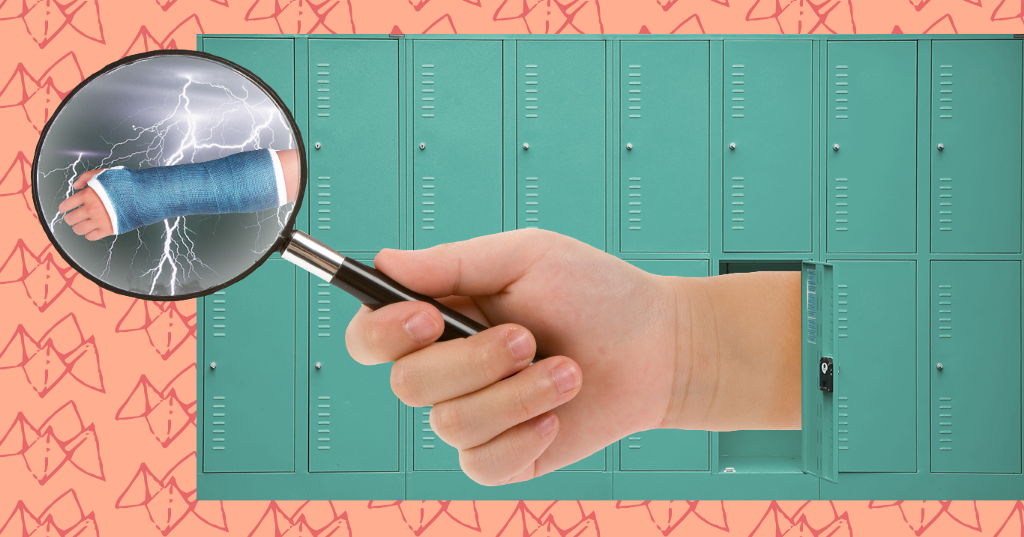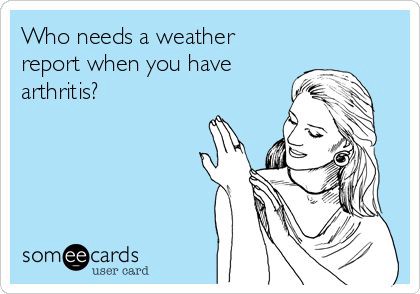Can A Broken Arm Really Predict The Weather?

Does pain = rain? The ancient Romans thought so.
Our Middle School Mysteries series investigates childhood rumors you never bothered to fact-check yourself.
I learned to read in the 90s, which means I consider all 131 books in “The Baby-Sitters Club” series to be canon.
In book 19, “Claudia and the Bad Joke,” Claudia breaks her leg while babysitting Betsy Sobak (who is by far the worst kid the babysitters had to watch, if you don’t count the Pike triplets or the racist family that tormented Jessi).
While reading about Claudia’s recovery process, I learned that people who break bones often experience joint pain when the weather changes. At the time, I thought this was the height of cool: a broken arm that essentially functions as a weather satellite? Sign me up, we’re going storm chasing!
The idea that the human body is somehow in cahoots with atmospheric shifts goes at least as far back as the Romans. “Hippocrates was the first to note, in about 400 B.C., that many illnesses were related to changes in season,” writes Robert N. Jamison, PhD, in his paper, “The Influence of Weather on Report of Pain.”
But unfortunately for Hippocrates — and for my elementary school self — science suggests there’s no link between changing weather and achy joints.

For a study published in December, researchers at the George Institute for Global Health in Australia examined 981 people who suffer from lower back pain. The researchers collected data from adults who experienced back pain after being pain free for over a month and cross-referenced that data with different weather patterns in the areas where their subjects lived. During the 4-year period that researchers conducted the study, they found no link between their subjects’ pain and local air pressure, wind speed, humidity or precipitation.
The George Institute has performed at least two other studies with similar findings.
Also, a Dutch study published in 2013 in the journal Arthritis Care & Research found no association between sensitivity to weather and the musculoskeletal condition fibromyalgia.
What’s next? You’re going to tell me that Karen from “Mean Girls” couldn’t actually tell when it was going to rain by groping her own breasts?
Even with scientific research showing that there’s likely no link between pain flare ups and changing weather patterns, experts are unable to definitively say that there’s no connection between these two phenomena.
“It is nearly impossible to ‘prove a negative’ — there is always a possibility that a particular weather feature does affect a particular type of arthritis in a particular set of people — but so far we haven’t figured out if that’s the case,” Robert Shmerling, the head of the rheumatology division at Beth Israel Deaconess Medical Center in Boston, told LiveScience earlier this month.
In other words, it’s unlikely — but not totally impossible — that your joints could be predicting the weather.
